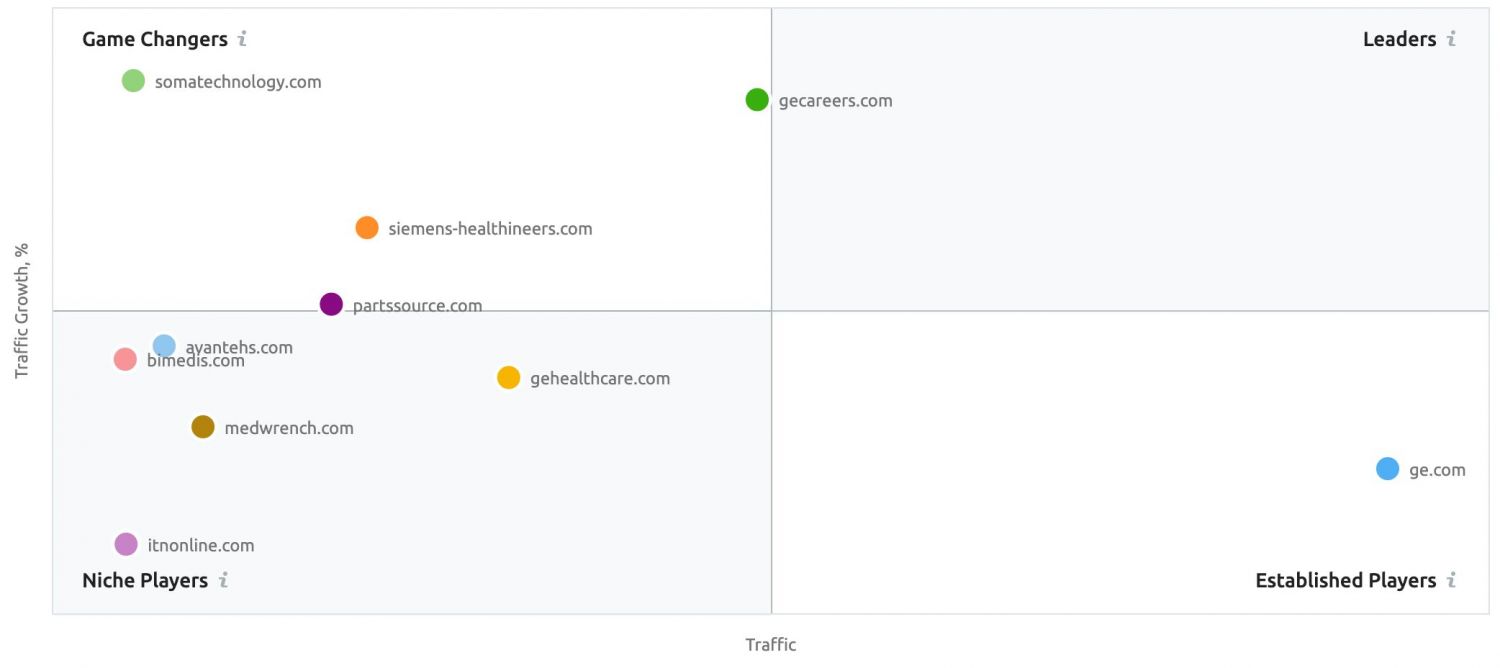A Digital Transformation Consulting Checklist
14 tips to get the most from your digital transformation consulting engagement.


Digital transformation consulting can sound daunting, and there are many articles that make it sound way more complicated than what it should be. At its core – it’s changing how organizations use digital to optimize how they work. It’s improving how they communicate to their customers at every touchpoint – from their site to their email communications. It’s improving how they use marketing automation and CRM to scale. It’s taking a data-driven approach to competition, so you can learn what makes them tick, so franky – you can do it better.
It’s examining how people and processes relate to technology, and ensuring user adoption is at the forefront. The below provides a brief checklist on finding the best consulting firm possible.
Ideas are easy, implementation is hard – and your digital transformation consulting team should do both.
Nobody wants to spend heaps of funds to only get a loosely coupled PowerPoint deck that’s full of digital technology recommendations without any plan of actually implementing what’s possible. Strategy is imperative, but strategy alone doesn’t spark change. We’ve heard many horror stories when months were spent on strategy, and there was no actual ‘doing’. Strategy consulting is great, but it’s implementing what’s found during discovery that’s going to transform your employee and customer experiences.
They should be at the intersection of KPIs and employee delight.
Your KPIs should be defined, measurable and obtainable. Any digital transformation strategy should have these clearly outlined and tracked at every major milestone. However, what’s often missed is understanding the mundane and tedious tasks that diminish overall employee satisfaction. Understanding what’s needed at different levels of the organization is not just a nice-to-have, it’s mission critical. Happier employees lead to a more productive workspace. It’s using digital to augment how you work.
Keep your business model at the forefront.
Proper consulting services either have experience in your particular vertical, or they have the skills to quickly learn the ins and outs of what makes your business tick. They should come to the table with ways to get more qualified leads and ways to deepen relationships with existing customers.
Know your competition as well as they know you.
There are numerous KPIs that can be explored using a wealth of different tools and technology. For example, gain a solid understanding of their domain authority, know their backlink/ off-page SEO strategy, understand what content is positively impacting their search rankings, and much more. By starting at the industry-level, and drilling down into the needed detail – a proper digital transformation strategy will be inclusive of doing what’s making your competition effective, except doing it way better.

5. Be technology agnostic to deliver exactly what you need.
There are many dedicated consulting firms out there that’s solely dedicated to a single piece of technology. Whether it’s Salesforce or Zoho for CRM, or Active Campaign or Autopilot for marketing automation – you’re not going to receive unbiased opinions. It’s like going to a store that only sells hammers, and you ask the best tool for you. Since they only sell hammers – we’ll give you a single guess on the product that’s going to be pushed your way.
Technology should follow your objectives, versus changing your objectives on what the technology can or cannot do. Instead, a technology and data agnostic approach encourages finding the best technology stack for your needs, versus the other way around.
6. A solid concentration on brand consistency.
Your people (both customers and employees) are everywhere. They’re on social media, they’re on your site, they scour the web just like the rest of us. Brand consistency is paramount across all channels.
7. Be adaptable to different industries and verticals.
No two organizations are similar: a digital business is going to be extremely different than a brick and mortar business. Different approaches need to be taken with different organizational structures. They have people and processes that are unique, and every digital transformation project should be malleable to change with each organization.
8. A track record in combining CRM and marketing automation.
Sure, CRM provides the data and analytics to get a 360-degree of your organization. However, when tightly intertwined with marketing automation is where true transformation occurs. For example, a prospect opens up an email from a recent campaign you’re promoting. That user should automatically be tagged in a specific way that scores their behavior and nudges them closer to the bottom of the funnel. Once that score is a certain number, a salesperson would receive a notification so they can take appropriate next steps.
9. Focus on organizational transparency.
People tend to nerd-out over data and data transparency. By having the information that is *relevant to them* is absolutely critical. We can’t improve on what we can’t measure. Data self-discovery also allows them to do whatever is needed with their data: combine in, mesh it and smoosh it. Canned, static reports are a thing of the past, and self-discovery data is where it’s at.
10. Putting project management and remote work at the forefront.
As the way we collectively work has fundamentally changed due to Covid, more organizations are rethinking the most efficient way to work. The pandemic has normalized remote work, and most teams have dramatically pivoted to accommodate this. That said, are they doing it in the best way? Likely not. It’s important to have the proper tools, processes and automations in place so teams can spend more time doing value-added work versus coordinating.
11. Invest in a beautiful, but easy and functional website.
A beautiful site is obviously wanted. However, beauty fades when it’s not also functional and easy-to-use. Changes should be a breeze, with proper access controls and publishing workflow. It’s the intersection of design, functionality and processes where the magic truly happens.
12. A strong focus on customer touch points.
Your customers are everywhere: they’re on social, your site, reading your email, and many other ways that you engage with them. Different people have different habits, and undergoing a persona exercise is critical in making sure they’re in the center of the entire digital experience. Personas are fictitious narratives that ‘bucket’ your people based upon who they are, and what they’re interested in. Once personas are established, the execution will be much easier for your entire organization.
13. Focus on user adoption.
This is the area that we see commonly neglected. New tech and new processes won’t be used unless it’s adopted from people across all levels of your organization. People should be trained in different ways: group training, functional/ department training, and one-on-one training. This approach encourages questions, and gives people with different learning styles opportunities to learn the best way for them.
14. Test and optimize
You could have the perfect strategy and execution, however nothing is ever going to go *exactly* as planned. As part of your transformation, the ability to be highly nimble should be baked into the overall solution. There are going to be new, agile competitors always your space, so you need to be able to quickly pivot to address new objectives and their respective obstacles. You need a solid pulse on what’s working and what’s not, and constantly tweak and optimize.
Summary
Digital transformation is a marathon, and not a sprint. It’s a way to change how you do things, and let technology do the heavy lifting, to allow your people the time and resources to do the things machines can’t do. It’s an unparalleled dedication to getting quality leads in the door, and using automation and CRM to convert those leads into valuable customers. Once they are your customers – it’s about deepening relationships with those customers, so they turn into your most effective advocates. True transformation is really about being the best organizational version of yourselves.
If any comments or questions, we’d love to hear from you. Please feel free to send us a message, and we’d love to chat with you.
Other Insights
Contact Us
Monday Loves You
1770 West Berteau Avenue, #206
Chicago, IL 60613
312.973.1112
hi@mondaylovesyou.com
©Duple Meter LLC 2024
Contact Us.
Monday Loves You
1770 West Berteau Avenue, #206
Chicago, IL 60613
312.973.1112
hi@mondaylovesyou.com







